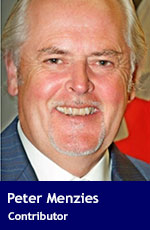 The Internet may very well be the innovation that liberated access to ideas, but the social media it spawned is swiftly evolving into the jackboot that suppresses them.
The Internet may very well be the innovation that liberated access to ideas, but the social media it spawned is swiftly evolving into the jackboot that suppresses them.
To put what’s happening today to an increasing number of editors into perspective – Ian Buruma of the New York Review of Books is just the latest victim – one has to go back to the pre-Internet days, when those of us within newsrooms were pretty much the only ones who knew what was and wasn’t in the paper or on the TV.
We spent our days scanning news wires for the information we thought was important and/or useful to our readers. We controlled the flow of information and people trusted us to do so in a responsible manner.
There were all kinds of interesting little decisions made every day that, in general, people didn’t know about. We never reported on suicides, for instance, because they inspired others to do the same. The editorial pages of one newspaper I worked for had, as many still likely do, banned commentary from anti-abortion perspectives. Others declared that the debate on global warming was over and skeptical perspectives would no longer be presented. This ensured that ideas within the ‘contentious social issues’ category didn’t inflame or divide public opinion as if, provided they didn’t appear in the paper, they didn’t exist.
We kept the gates. We did our best, or so we said, to ensure the mob was not inflamed. When it was and we were at fault, we would beg and usually be granted forgiveness. But when we were right, we and our advertisers would defend our principles, chief among them freedom of speech.
And then the Internet came along and everyone we had excluded got a voice again. Many of us saw it as the dawn of a new age – one that would leave little room for prejudicial behaviours and that would apply more pressure on professional media to behave even more professionally. This, surely, was a chance for people from all perspectives to become exposed to alternative and fresh points of view, inspiring a richer intellectual tapestry within the public square. The world would be a better place.
Well, not so much.
No one expected that people would attempt to express complex ideas within 140 characters and that others would be willing to respond without even a millisecond set aside for pondering and politeness.
Yes, liberty flourished, but the Eden-like public square many envisioned was swiftly overrun by a collection of cacophonic rabble dedicated to crushing ideas to which they’re opposed. This post-modern neo-puritanism is far more threatening to the polity than the soft paternalism practised in most ‘back in the day’ newsrooms.
Social media is now fully weaponized. What happened in New York is similar to what happened to former editors Hal Niedzviecki at Write (the Writers’ Union of Canada magazine) and Jonathan Kay at The Walrus.
Buruma resigned under pressure after publishing a personal essay by Jian Ghomeshi, the once wildly-popular CBC host accused of sexual assault only to be found not guilty in March 2016. According to Canadian Press, “critics swiftly denounced the piece as a self-serving bid for public rehabilitation” – as if people found not guilty in the courts are forbidden to do so.
“It is rather ironic: as editor of the New York Review of Books I published a theme issue about #MeToo offenders who had not been convicted in a court of law but by social media,” Buruma told the Dutch magazine Vrij Nederland. “And now I myself am publicly pilloried.”
This is certainly not a defence of Ghomeshi or, for that matter, any other particular point of view.
It’s merely a plea for civility and liberal order – a world in which people who wish to influence opinion should shoulder the responsibility to at the very least engage in an argument before winning it.
Troy Media contributor Peter Menzies is a former newspaper publisher and Canadian Radio-television and Telecommunications Commission (CRTC) vice-chair.
The views, opinions and positions expressed by columnists and contributors are the author’s alone. They do not inherently or expressly reflect the views, opinions and/or positions of our publication.
